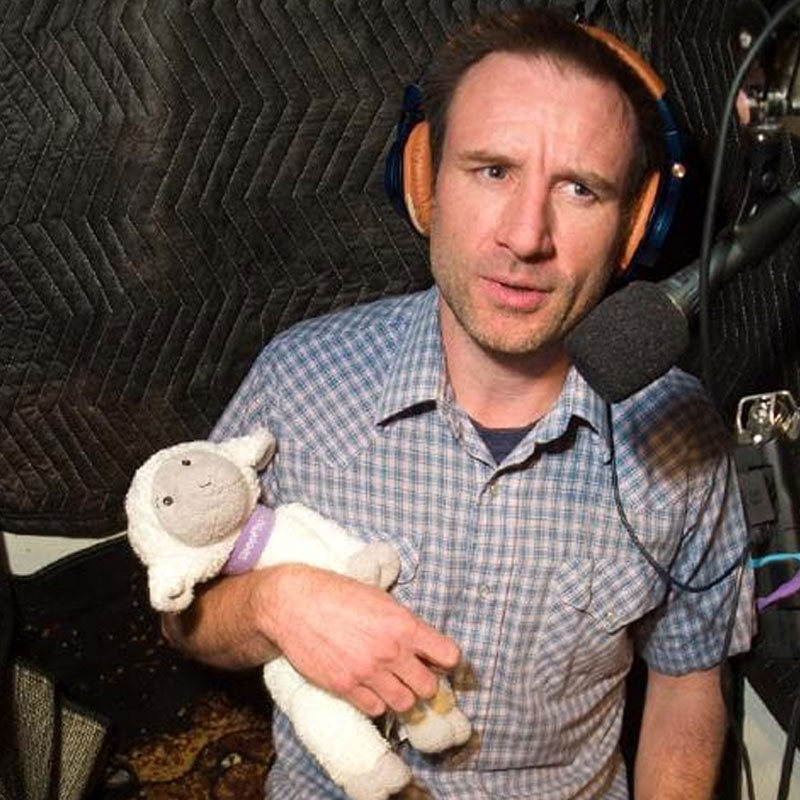Since 2013, Drew Ackerman has been creating stories that strike the perfect balance between comforting and snooze-inducing for his hit show, Sleep With Me, now part of the podcast network Night Vale Presents.
Drew, who goes by Dearest Scooter on the podcast, is an OG podcaster who absolutely loves what he does. “I’m lucky to be able to make this show,” Drew says on an episode of Between 2 Mics.
There are many reasons why sleep eludes people at night — chronic pain, PTSD, anxiety, the recent loss of a loved one. Whatever it might be, Drew appreciates his role as Chief Bedtime Storyteller, in part, because he can relate to sleepless nights. Drew experienced childhood insomnia as a kid.
“It’s lonely in this weird existential way almost, I know what that feels like and so if I can help people … it’s really humbling,” he says.
Drew shares his reflections on the early days of making his podcast, how he overcame his doubts before he had an audience, as well as the challenges of the creative process.
You really have to just start
When he first got into podcasts years ago, Drew was taken with the breadth and diversity of content. The idea for Sleep With Me came soon after that.
“I was like, holy cow! I can’t believe you can make a podcast about this or you can make a podcast about almost anything,” he says.
He loved how podcasting differentiated itself from radio, which he describes as “kind of vanilla and generic.” But when he came up with the idea for a podcast designed to lull people to sleep, he dismissed it even though Drew noticed there were no shows offering bedtime stories for adults.
Despite resisting the idea and coming up with reasons why he shouldn’t make it, the idea wouldn’t leave.
So he just started making Sleep With Me.
Drew reference’s Ira Glass’ thoughts on taste: when you start out doing creative work, it doesn’t measure up to how good you think it should be. You have great taste at the start, but your skills aren’t quite there to deliver on it.
“I think that’s what happened with the show,” Drew says. “I knew what I wanted to be: How could I get there and would it work?”
Harnessing small goals and ‘positive’ competition
Deciding to start was just step one. Next Drew had to push through doubts about whether the show was any good and if he should continue on at all.
“I kept putting my idea down — this isn’t a good enough idea,” Drew says of the early days of the podcast. “I’d record episodes and think, oh this episode’s terrible, there’s no one listening.”
The best way to overcome his inner critic, Drew found, was to pick a goal and work towards it.
Drew learned that a huge number of podcasts never even made a second episode. He decided to try to beat those odds.
“There’s a huge fall off between shows that record episode one and episode two, and then there’s a huge fall off between shows that record episode two and episode eight,” Drew says. Once shows hit the eighth episode, a chunk of them never make it past episode 21. Then, there’s another fall off between 21 and episode 50, Drew says.
He used those statistics as motivation and set small goals. First, he wanted to get to episode eight, then 21, then 50. “I looked at it like a positive form of competition,” Drew says.
Zachariah Moreno is the co-founder, CEO, & CTO of SquadCast. He is also a podcaster, author, developer, and designer. He and his team are on a mission to amplify collaboration.
